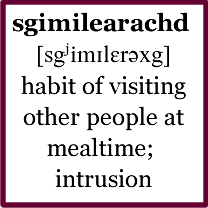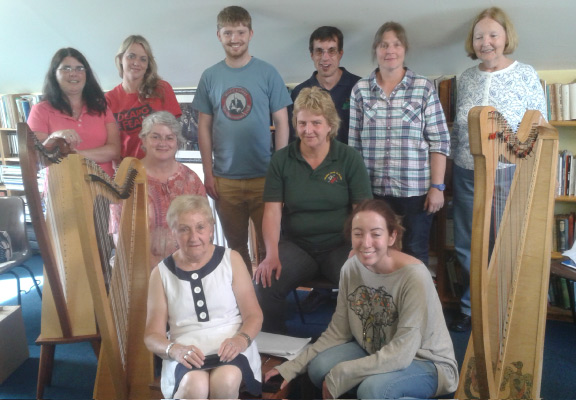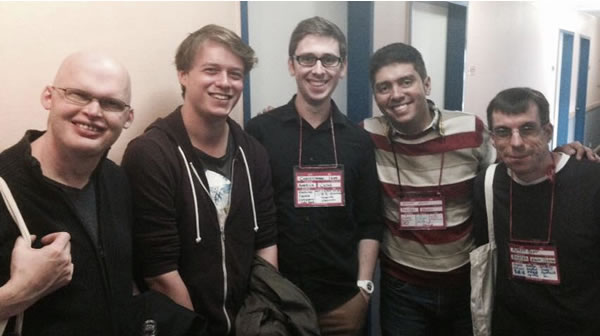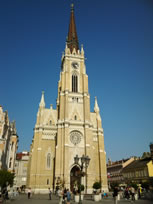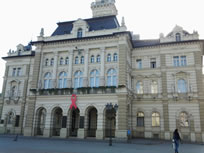The other day I received an email with some corrections to my Scots phrases page. One thing the writer objected strongly to was the use of the name Scots for the language/dialect in question. He believes it should be called Scottish, and that nobody calls it Scots.
My understanding is that three main languages are spoken in Scotland:
– Scottish Gaelic – a member of the Goidelic branch of the Celtic language family descended from Old Irish
– Scottish English – English spoken with Scottish accents (there are more than one) with a few words from Scots and Scottish Gaelic
– Scots – a descendant of the language(s) spoken by the Angles who settled in northern England and southern Scotland from the 5th century AD. Scots has been influenced by Gaelic, Norse, Latin, Dutch, Norman French, Standard French and English, and was the main language of Scotland, used in literature, education, government and in legal documents, from the 14th to the 18th centuries.
There is no doubt about the status of Scottish Gaelic – it is definitely a separate language that is closely related to Irish and Manx Gaelic, and only very distantly related to English and Scots. However there seems to be quite a bit of uncertainty about the status of Scots.
According to a study, “Public attitudes towards the Scots language” carried out by the Scottish Government in 2010, 64% of respondents (around 1,000 individuals) “don’t really think of Scots as a language”, but it also found that “the most frequent speakers are least likely to agree that it is not a language (58%) and those never speaking Scots most likely to do so (72%)”
Scots is a contraction of Scottis, the Older Scots and northern version of late Old English Scottisc (Scottish), which was formerly written Scyttisc. Before the end of the 15th century English speech in Scotland was known as Ynglis or Inglis (English), while Scottis referred to Gaelic. From 1495 Scottis was increasingly used to refer to the language of the Lowlands (Scots), and Scottish Gaelic was known as Erse (Irish).
Scots is also known as braid Scots (broad Scots), Doric (spoken in the north east of Scotland), Lallans (Lowlands – spoken in south and central Scotland). Doric and Lallans have both been used / are used to refer to Scots as a whole.
Source: https://en.wikipedia.org/wiki/Scots_language
There are many regional variations in Scots, which can be divided into the following regions and areas: Shetland; Orkney; Caithness; Aberdeen and North East; Angus; Dundee, Perthshire, Fife; Edinburgh and East Central Scotland; Glasgow and West Central Scotland; Borders; South West
You can hear recordings of each of these variations on: http://www.ayecan.com/listen_to_scots.html
You can see written samples in different varieties of Scots (and many other languages) at: http://www.evertype.com/carrolliana.html
Do you speak Scots or Scottish?
If so, which variety do you speak, and do you think of it as a distinct language?
By the way, I have up-dated and improved my Scots phrases page so that all the phrases are in the Scots of north east Scotland, a.k.a. Doric. If you can provide recordings of those phrases, or provide them in other varieties of Scots, please let me know.
